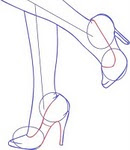I am not a chemist. I do not work in a laboratory. In fact, I hate lab work. I have a scar on the palm of my right hand from a first-year varsity pipette-related incident - that led to stitches - serving as a constant reminder of how much I hate lab work. The last time I worked in a lab was in second year during Chemistry practicals and I detested every second. And yet, when I tell people that I am a chemical engineer, the first question is most often: “Oh, so you like… work in a lab?” Um, no. But thanks for playing.
It struck me when talking to fellow blogger and friend, Dr S (Dr as in Dr, not Dr as in PhD), that many bright, otherwise socially-acceptable people out there have no idea what engineers actually do. Since none of you reading this are probably bright-eyed, eager-beaver high-school students wondering what soul-destroying career to dedicate your life to, I will keep it simple. In the purest form of all disciplines, engineers design. Mechanical engineers design mechanical systems, engines, gears. Electrical engineers design electrical systems, efficient electrical distribution, power plants. Civil engineers design roads, bridges, towns. Industrial engineers design work environments. Chemical engineers design chemical processes, select the suitable type of tanks, mixers, heat exchangers, pipes, pumps involved in the process and specify the right sizes. We are also held responsible for not damaging the environment or killing any staff in the process (explosions, electrocutions, etc) and not spending a cent more than required. And almost always a fellow engineer manages the labour who builds or runs the operations we design, or manages the maintenance team maintaining the technology. I heard a quote on a National Geographic or Discovery Channel documentary that explained engineering aptly. It went something like: “People think engineers are there to build things as big, thick and strong as possible when actually their role is to keep trying to do more with less and strip excesses away until just shy of the breaking point.”
That is what we are meant to do, anyway. In practice we end up in banking.












No comments:
Post a Comment
Note: Only a member of this blog may post a comment.